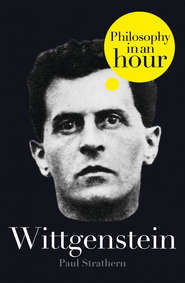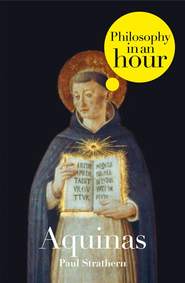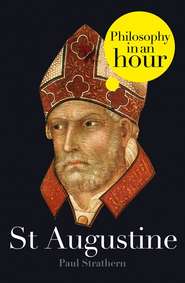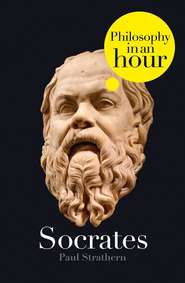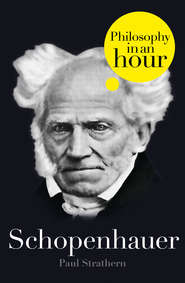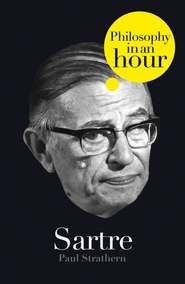По всем вопросам обращайтесь на: info@litportal.ru
(©) 2003-2024.
✖
Kierkegaard: Philosophy in an Hour
Настройки чтения
Размер шрифта
Высота строк
Поля
After leaving school Kierkegaard enrolled at the University of Copenhagen to study theology. Here he seems to have been a surprisingly normal student. Quickly recognised for his wide-ranging erudition and waspish wit, he cut quite a figure in the student circles of provincial Copenhagen. He soon found himself neglecting the study of theology in favour of philosophy. He became interested in Hegel, whose philosophy had spread like the plague throughout Germany (and was now reaching epidemic proportions in various lesser philosophic nations). Hegel’s deep seriousness and earnest, spiritually oriented view of the world struck a chord in Kierkegaard. According to Hegel’s all-embracing system, the world developed according to a triadic dialectical process. An initial thesis would generate its antithesis, and both would then be subsumed in a synthesis (which in turn was seen as a thesis, and so on). His classic example was:
Thesis: Being (or existence). Antithesis: Nothing (or nonexistence). Synthesis: Becoming.
By means of this dialectic everything moved toward greater self-consciousness, and ultimately toward the Absolute Spirit, which subsumed everything as it contemplated itself. This all-embracing Absolute Spirit even subsumed religion, which was viewed as an earlier stage of the ultimate philosophy (that is, Hegel’s). The appeal of such a philosophy to the introverted Kierkegaard is obvious – not least in its oedipal, religious, and narcissistic aspects.
Although Kierkegaard was overwhelmed with admiration for Hegel, his relationship toward him was suitably dialectical from the start. He loved him, he hated him, and ultimately his own anti-Hegelian philosophy was to be suffused with Hegelian concepts – not the least being Kierkegaard’s own version of the dialectic. But more important, right from the start Kierkegaard had doubts about the Absolute Spirit and its self-knowledge. For Kierkegaard, self-knowledge had to be achieved at the subjective level. He insisted that for individuals the subjective had to be more important than any Absolute Spirit. The subjective realm was our major concern. Some resourceful commentators have detected unconscious echoes of Kierkegaard’s relationship to his father in all this. And sure enough, the young subjective element was soon to find itself in opposition to the paternal Absolute Spirit.
Around this time Kierkegaard’s relationship with his father underwent a dramatic change. By way of passing on the family curse, Kierkegaard senior appears to have made a number of confessions to his intense and impressionable son. He explained how he had cursed God long ago on a hill in Jutland. Kierkegaard is said to have recoiled from this revelation in horror, and soon afterward began to drift into a drunken, dissolute life at the university.
Some perceptive commentators have suggested that there is more here than meets the eye. By this stage Kierkegaard was probably looking for an excuse to break free of his father’s overbearing influence. It also seems certain that the pious old man’s confession included more than just theological matters. He may well have confessed that he had committed fornication – sleeping with the maidservant (his future second wife, Kierkegaard’s mother) while his first wife lay on her deathbed. This could also help to explain the dramatic – or self-dramatised – turn in Kierkegaard’s behaviour (which was not quite as dissolute as he would have us believe). But it has also been suggested that the father’s confessions contained something more serious than infantile blasphemy and earnest guilt over peccadilloes. In the view of critic Ronald Grimsley, covert references in Kierkegaard’s journals hint that the father had visited a bordello and contracted syphilis, which may even have been passed on to his son. Kierkegaard’s subsequent behaviour certainly doesn’t rule out this lurid possibility.
Вы ознакомились с фрагментом книги.
Приобретайте полный текст книги у нашего партнера:
Приобретайте полный текст книги у нашего партнера:






